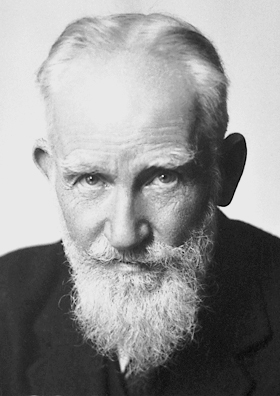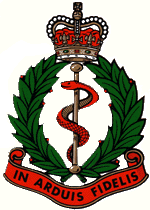Randi is a retired professional magician, world famous for having offered:
a one-million-dollar prize to anyone who can show, under proper observing conditions, evidence of any paranormal, supernatural, or occult power or event.To date, this prize has not been won. No one has even passed the preliminary tests to claim the prize although there are an awful lot of people claiming to have supernatural powers (and making money out of it). Mr. Randi doesn't mince his words about such people. Inventing a name for them, "woo-woos," he calls them blatant liars and cheats, especially the ones (like the multimillionaire Peter Popoff) who call themselves Reverend. They "don't give a damn if they hurt you," and the authorities that fail to control them are "so chicken ... it's disgusting."
Bona fide magicians, on the other hand, are the most honest people in the world. They are not like those tricksters on the make who try to sell you MagnaForce Shoes or Laundry Balls (containing tap water dyed blue). He thinks chiropractors are utter quacks, and as for homeopathic medicine––it's a farce and a fraud. Homeopathic doctors deal in delusion and dilution; making that neat pun as an aside, he told us how he'd once swallowed some homeopathic sleeping pills and phoned the Poison Control Centre to ask for their advice.
"I've taken an overdose of 30 pills. Do you think I'm in danger?"
"Oh yes, sir! Could you just tell us the name of the pills."
He did and said there was a long pause. He said he could hear the person trying not to giggle at the other end of the line. "Not to worry, sir. You'll be fine."
Mr. Randi is 83 years old, a little man (shorter than I am) with a long and bushy white beard and a bald head. He has recently recovered from heart bypass surgery and chemotherapy after bowel cancer. He did not look so small on stage where he spoke fluently, without notes, on his feet, for nearly three hours. For the first fifteen minutes or so of his talk he fooled us into thinking that the object he held in his hand was a microphone. Then he put it down, confessing that it was not a microphone but a beard trimmer (the like of which he rarely uses for its intended purpose, although he did tell a story about having his beard vacuumed when he visited NASA at Houston to perform a remote card trick with the astronauts on the space station). All the way through he regaled us with jokes and stories like that, all with the message: don't believe everything you see or hear. He said that some people are born sceptics ... and some are born-again sceptics. Friends of his included the illustrious Arthur C. Clark and Martin Gardner.
According to Randi, the Bush administration in the USA who recommended "faith-based thinking" was guilty of "science bashing at its absolute worst." Americans still refuse to adopt the metric units, because that system was designed by atheists, people say, and what is worse, by French atheists (laughter). He was "pretty damn' proud" that America had more recently elected a more thoughtful President ("...and I still am, so there!") but was critical of Obama too, for the way he feels he always has to bring a prayer to God into his speeches. Mr. Randi claims there are two kinds of atheist: the ones who say "There is no God!" and the ones who say "There is not enough evidence to convince me that there is a God." He (Randi) belongs to the second camp, not wishing to offend intelligent people who, if it weren't for their religious beliefs, would make good sceptics. Randi's Educational Foundation (the JREF) is therefore not atheist per se.
He was very entertaining when telling his anecdote about the levitating matchbox, an old trick that fooled a team of established scientists at the Lawrence Livermore Labs into thinking that the man levitating the matchbox might really have "psycho-kinetic powers." His account of the fake, expensive mine detector dowsing rods used by the military in Iraq and Afghanistan was not so funny. Apparently these deadly things are still on the market, still being deployed. He took one apart on stage in order to show its workings to a volunteer electrician from the audience. It had the same circuitry that you'd find in T.V. remote controllers made in Taiwan.
Mr. Randi followed this bit of seriousness with an impassioned plea to teach our children and the students in our schools to think critically, and never to accept what we hear without questioning it.
The talk ended with a standing ovation, the 7th out of 9 such presentations given across Canada to packed, enthusiastic audiences. As I walked out of the auditorium past the old gentleman who was continuing to hold people enthralled as they clustered around him, I suddenly realised whom he reminded me of: George Bernard Shaw.
 |
| G.B.S. |
 |
| James Randi |













